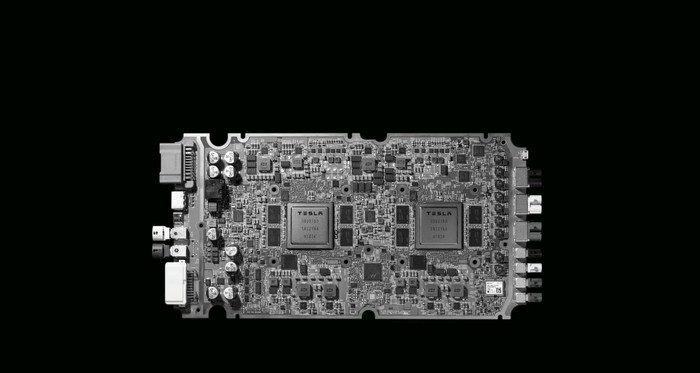
White House: Tesla's Chinese-made Autopilot brain not exempt from tariffs
The company also applied to exempt its 17-inch touch screen.
The White House confirmed it won't grant Tesla an exemption from the 25-percent tariff it slaps on components made in China. Tesla applied to exclude several parts, including the Model 3's 17-inch touch screen, and what it calls the car's brain.
Tesla asked the government to exclude its Autopilot 3.0 ECU (which is made by Quanta Shanghai) in the summer of 2018, according to Reuters. At the time, it told legislators that "increased tariffs on this particular part cause economic harm to Tesla, through the increase of costs and impact to profitability." Its arguments weren't strong enough to convince the U.S. Trade Representative's (USTR) office.
USTR general counsel Steve Vaughn wrote that Tesla's request "concerns a product strategically important or related to 'Made in China 2025' or other Chinese industrial programs." He shot down Tesla's request to exempt an older version of the ECU, too. The solution, it seems, is to build both parts in the United States -- or, at least, somewhere outside of China. The California-based firm argued it's not that easy.
Still according to Reuters, Tesla told the USTR it couldn't find an ECU manufacturer in the United States. It added "choosing any other supplier would have delayed the (Model 3) program by 18 months with clean room setup, line validation, and staff training." The company stressed Quanta is the best company for the job.
"For a product as safety-critical to consumers, and critical to the essence of Tesla, we turned to industry experts who could achieve this quality and complexity in addition to the deadlines, which was not possible outside of China," the firm wrote.
White House officials haven't decided whether to grant a tariff exclusion for the touch screen. There's no word yet on when they'll make a decision.
In the past, the Trump administration has said the tariffs are a way to stunt the growth of high-tech sectors in China. It argued much of the technology that fuels these lucrative sectors across the Pacific has either been stolen, copied, or forcefully transferred from the companies based in the United States -- the Chinese government notably forced foreign firms operating on its soil into joint-ventures with local partners. China, on the other hand, is closely following a plan called Made in China 2025 that leaders hope will help it overtake America in 10 strategic industries (including automobiles, aerospace, IT, and pharmaceutical) by 2025.